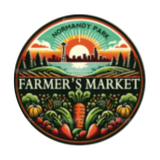Farm markets, with their bustling stalls and vibrant displays of fresh produce, evoke a nostalgic charm that beckons both locals and tourists alike. These agrarian hubs are not just places to buy fruits and vegetables; they are cultural landmarks, embodiments of community spirit, and showcases of sustainable agriculture. In this article, we delve into the world of farm markets, exploring their significance, offerings, and the experiences they offer to visitors.
The Significance of Farm Markets: Farm markets serve as vital links between farmers and consumers, providing a platform for direct sales of agricultural products. By cutting out intermediaries, they ensure that farmers receive fair compensation for their produce while offering consumers fresher, often organic, and locally sourced items. This direct relationship fosters transparency and trust, allowing consumers to learn about the origins of their food and the practices behind its cultivation.
Furthermore, farm markets play a crucial role in promoting sustainable agriculture. Many vendors prioritize environmentally friendly farming methods, such as organic or regenerative practices, reducing the ecological footprint of food production. Additionally, by showcasing a diverse range of crops, including heirloom varieties and lesser-known vegetables, farm markets contribute to biodiversity preservation and culinary diversity.
The Experience: Visiting a farm market is more than just a shopping trip; it’s an experience that engages all the senses. The sight of colorful displays overflowing with fresh fruits, vegetables, flowers, and artisanal products is a feast for the eyes. The aroma of ripe strawberries, fragrant herbs, and freshly baked goods fills the air, enticing visitors to sample the offerings. The sounds of vendors calling out their wares, live music, and conversations between patrons create a lively atmosphere brimming with energy and camaraderie.
Moreover, farm markets offer opportunities for education and enrichment. Many markets host cooking demonstrations, workshops on gardening and sustainable living, and farm tours, allowing visitors to deepen their understanding of agriculture and food production. Children can participate in hands-on activities like planting seeds or interacting with farm animals, fostering an early appreciation for nature and healthy eating habits.
Community and Connection: At its core, the farm market is a gathering place where communities come together to celebrate local culture and heritage. It’s where neighbors catch up over a cup of freshly brewed coffee, where chefs chat with farmers to source ingredients for their restaurants, and where artisans showcase their crafts alongside farm-fresh produce. This sense of community fosters connections between producers and consumers, strengthening the social fabric of neighborhoods and fostering a sense of belonging.
Additionally, farm markets often serve as incubators for small businesses, providing a low-barrier entry point for entrepreneurs to test their products and connect with customers. Whether it’s a budding baker selling homemade bread or a fledgling farmer offering specialty mushrooms, the market provides a supportive environment for entrepreneurs to thrive and grow.
Conclusion: Farm markets are more than just places to buy groceries; they are vibrant hubs of activity that celebrate the bounty of the land and the richness of community life. By supporting local farmers, promoting sustainable agriculture, and fostering connections between producers and consumers, farm markets play a vital role in shaping healthier, more resilient communities. So the next time you’re in search of fresh produce or simply craving a taste of local flavor, consider visiting your nearest farm market and immerse yourself in its unique charm and abundance.


0 Comments